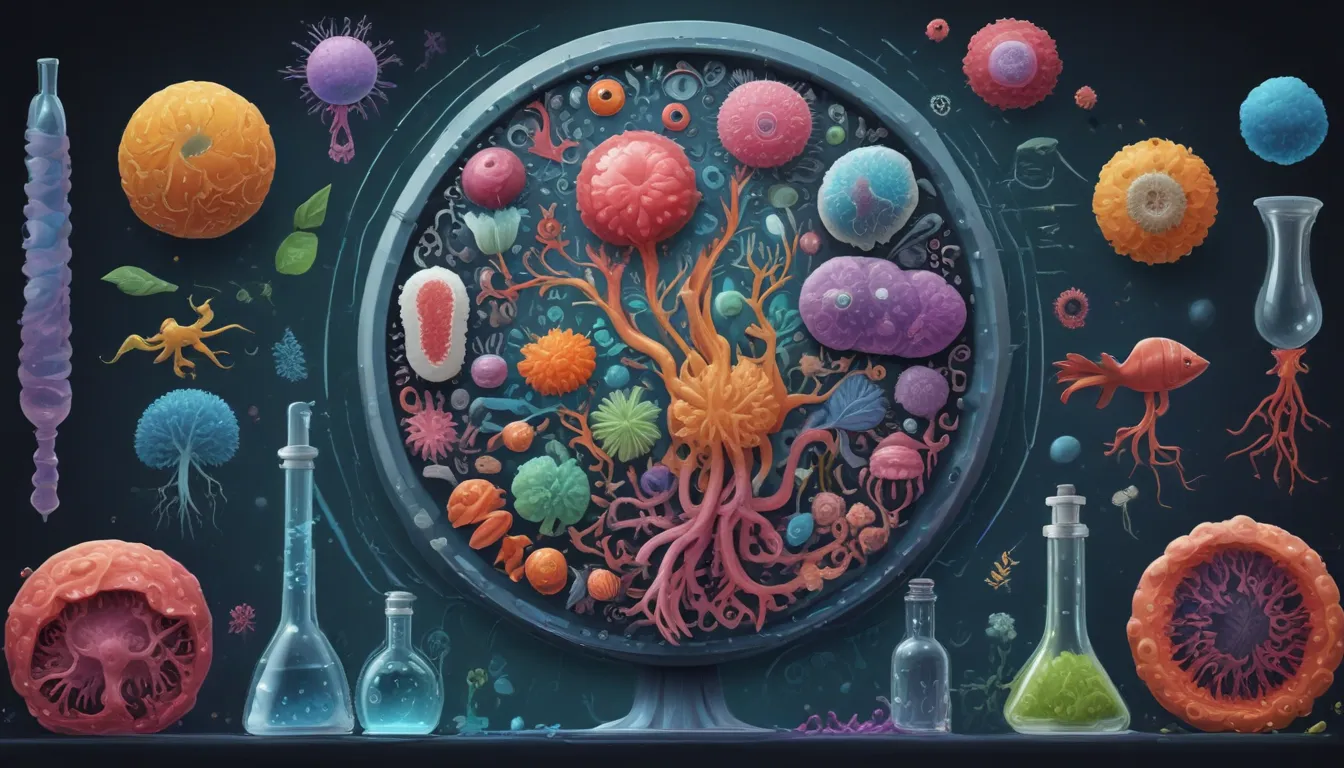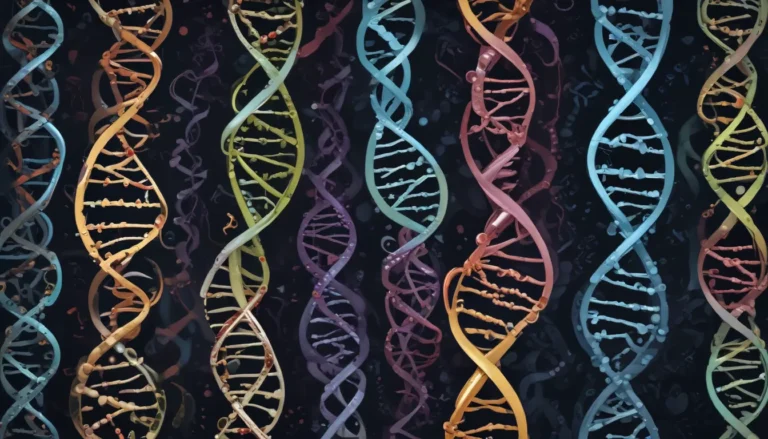A Note About Images: The images used in our articles are for illustration purposes only and may not exactly match the content. They are meant to engage readers, but the text should be relied upon for accurate information.
Microbiology, the study of microscopic organisms, offers a captivating glimpse into the unseen world of bacteria, viruses, fungi, and other microorganisms. These tiny entities, too small to be seen by the naked eye, play a vital role in health, disease, and the environment. From the discovery of penicillin to groundbreaking advances in genetic engineering, microbiology has revolutionized medicine and biotechnology. In this article, we will delve into the enigmatic world of microbiology and explore 11 intriguing facts that will leave you in awe of the microscopic realm.
Microbes: Tiny Marvels Shaping Our World
Microbes outnumber human cells and play vital roles in our health. They can survive extreme conditions and have been around for billions of years, shaping the Earth’s climate and impacting food production. Let’s explore the fascinating world of microbiology and uncover the mysteries of these tiny marvels.
Microbes Outnumber Human Cells
Did you know that our bodies are home to trillions of microorganisms? In fact, there are more microbial cells in and on our bodies than there are human cells! These microorganisms, such as bacteria, fungi, and viruses, play vital roles in our overall health and well-being.
Microbes Shape the Earth’s Climate
Microbes are not only essential for sustaining life on Earth, but they also play a significant role in shaping the climate. Certain bacteria, known as cyanobacteria, are capable of photosynthesis and produce oxygen as a byproduct, contributing to the planet’s oxygen-rich atmosphere.
Microbes Can Survive Extreme Conditions
Microbes have the incredible ability to survive in environments that are hostile to most other life forms. They can withstand extreme temperatures, high levels of radiation, and even thrive in highly acidic or alkaline conditions.
Microbes Help Fight Disease
Contrary to popular belief, not all microbes are harmful. In fact, many are beneficial and can help us fight off disease. The human microbiome, which consists of the microorganisms living in and on our bodies, plays a crucial role in immune system development and overall health.
Microbes Can Communicate
Bacteria have a unique ability to communicate and coordinate their actions. Through a process called quorum sensing, bacteria produce and detect chemical signals to exchange information with each other, allowing them to act collectively as a community.
Microbes Are Key to Food Production
Microbes play a vital role in the production of foods such as cheese, yogurt, and bread. They are involved in fermentation processes, breaking down sugars and producing byproducts that give these foods their unique flavors and textures.
Microbes Have Industrial Applications
Microbes have numerous industrial applications, ranging from environmental cleanup to the production of biofuels and pharmaceuticals. They can be engineered to break down pollutants, generate energy, and even produce valuable compounds for medical purposes.
Microbes Are Found Everywhere
Microbes are incredibly widespread and can be found in almost every environment on Earth. They exist in the deepest parts of the oceans, within rocks, in hot springs, and even within the human body.
Microbes Can Cause Infectious Diseases
While many microbes are harmless or beneficial, certain types can cause infectious diseases. Common examples include bacteria like E. coli and Salmonella, as well as viruses like the flu virus and HIV.
Microbes Have Unique Genetic Capacities
Microbes possess incredible genetic diversity and have the ability to transfer genes horizontally, meaning they can acquire new traits from other microbes. This feature contributes to their adaptability and survival in various environments.
Microbes Have Been Around for Billions of Years
Microbes are among the oldest life forms on Earth, with evidence dating back billions of years. They have played a crucial role in shaping the planet’s biosphere and continue to impact the global ecosystem today.
Delve Deeper into Microbiology
Microbiology is a captivating field that offers a deeper understanding of the intricate world of microscopic organisms. From the diverse range of microorganisms that exist to their incredible ability to adapt and survive, there is still so much to uncover. By studying microbiology, scientists have made significant advancements in medicine, agriculture, and environmental science.
With each new discovery, we gain a deeper understanding of the roles microorganisms play in our lives. Whether it’s the production of antibiotics, the degradation of pollutants, or the functioning of our immune system, microbiology has a profound impact on various aspects of our society. As technology advances and our knowledge expands, we can expect even more enigmatic facts about microbiology to come to light. So, keep exploring, questioning, and learning about this captivating field!





